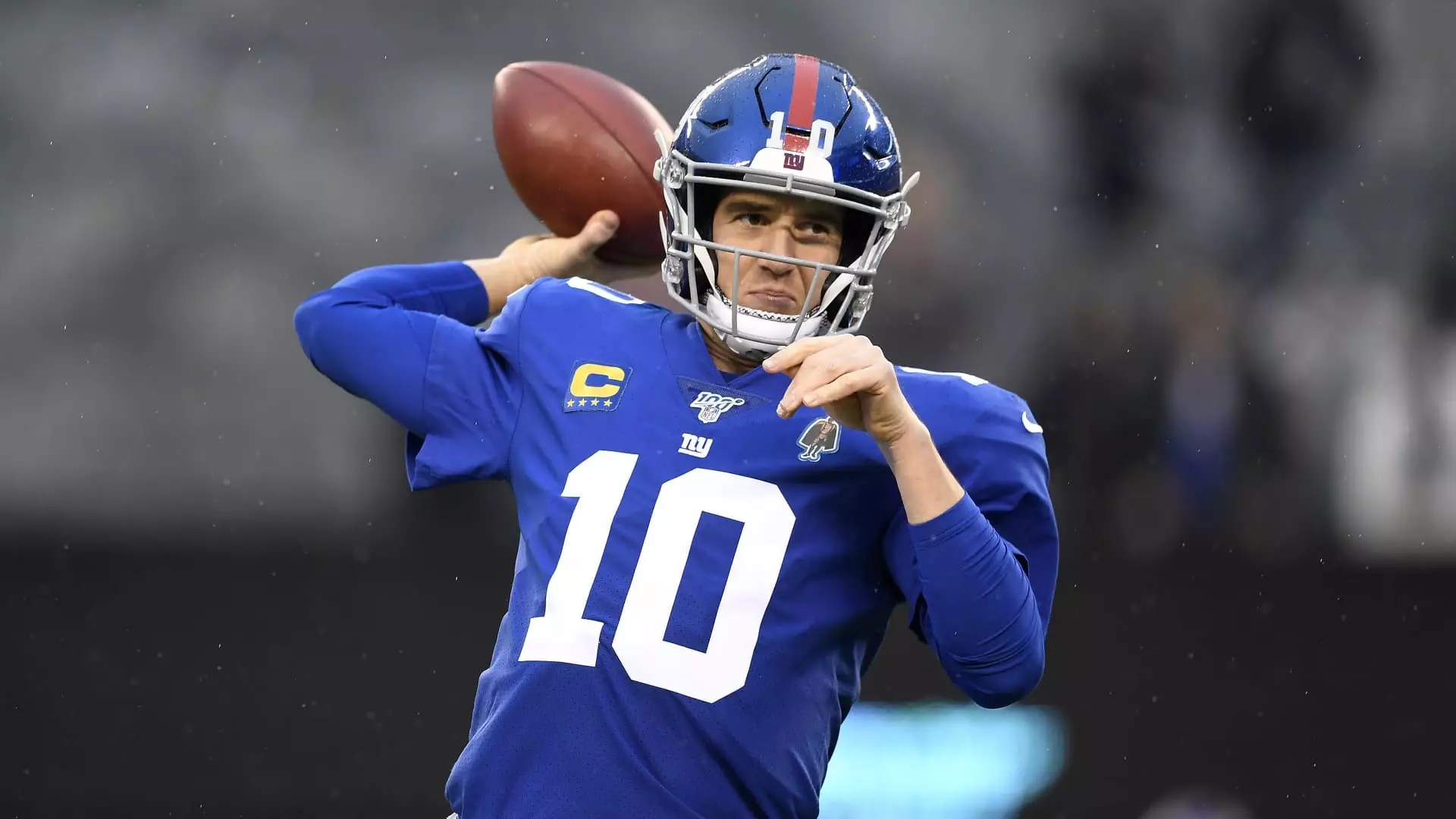In an era where professional sports franchises reach dizzying valuations, the narrative that ownership is reserved for billionaires remains a comforting myth. Eli Manning, a beloved former quarterback, recently highlighted an uncomfortable truth: the astronomical valuation of NFL teams has made minority stakes prohibitively expensive for even the most iconic players. His candid admission that a 1% share in a $10 billion franchise is simply too costly exposes a stark reality—what once may have seemed within reach now stands firmly out of grasp for the average investor or sports enthusiast. This disparity underscores how inflated valuations distort perceptions, creating a barrier between passionate individuals and genuine ownership involvement.
As NFL teams like the New York Giants, Philadelphia Eagles, and San Francisco 49ers continue to command valuations in the multi-billion-dollar range, the allure of ownership becomes a luxury reserved only for the ultra-wealthy. Manning’s comment that he feels “priced out” is not just a personal reflection but a window into the broader issue of economic exclusivity that now defines professional sports. This environment fuels a misconception that sports franchises are attainable investments for those outside the global billionaire class. Such illusions are dangerous because they mask the true cost of ownership and diminish the democratic appeal that once characterized sports fandom.
Valuations vs. Reality: The Fluctuating Market Dynamics
The significant upward swing in franchise valuations over recent years makes this situation even more complex. CNBC’s NFL valuation rankings reveal a league where teams like the Eagles and 49ers have seen their worth surge past $8 billion. Meanwhile, the NBA’s Los Angeles Lakers approach a $10 billion valuation—a figure that seems almost surreal when compared to traditional sports investments. These valuations are often driven more by market speculation and brand prestige than underlying operational profitability, further skewing the actual cost and value proposition of team ownership.
Moreover, recent high-profile sales—such as the Eagles’ minority stake at an $8.3 billion valuation—highlight a trend where investors are willing to pay a premium for access to what they perceive as lucrative, high-growth assets. Yet, this skyrocketing market raises questions about sustainability and whether the lofty prices can be justified by future returns or simply feed a speculative bubble. For individuals like Manning, the escalating numbers mean that owning even a modest share becomes less about passion and more about confronting an almost insurmountable financial barrier.
The Political and Economic Implications of Concentrated Wealth
The implications extend beyond economic barriers into broader political and social realms. The increasing exclusivity of sports ownership echoes the widening wealth gap within society, where access to valuable assets is arguably becoming more confined to the ultra-rich. The fact that the Mara and Tisch families own a majority stake in the Giants without significant public pressure underscores how wealth concentration consolidates control over cultural institutions like professional sports.
For a center-right liberalism perspective—an approach advocating for economic responsibility and fair opportunity—the current state of NFL franchise valuations exposes a troubling trend. The notion that sports franchises are part of the broader economic fabric, accessible to all who work hard and invest smartly, is dimmed by the reality that ownership is increasingly a game for the ultra-wealthy. The potential for public investment or shared ownership schemes diminishes as the cost of entry spirals beyond the reach of the middle class.
Furthermore, NFL’s recent policy changes allowing private equity firms to acquire stakes of up to 10% compound this issue. While meant to inject capital and foster growth, it risks further entrenching a model where ownership returns are concentrated within a tight circle of financial elites. Manning’s decision not to pursue a stake—partly due to conflicts of interest with his media commitments—also highlights how modern sports investments are as much about strategic branding as they are about genuine participation.
The Future of Sports Ownership: A Critical Turning Point
The trajectory suggests an impending transformation in how professional sports franchises are owned and perceived. The era of fan-ownership or community-driven investments appears increasingly distant in light of these inflated valuations. Instead, sports franchises risk becoming exclusive clubs for the hyper-wealthy, reinforcing social stratification rather than democratizing entertainment and community pride.
From my perspective—center-right on the political spectrum—this trend warrants skepticism. It invites scrutiny over whether the expanding valuations truly benefit the broader public or simply serve as financial playgrounds for the already rich. The notion that sports are America’s heartbeat should include a belief in accessible participation—not just as spectators but as owners and stakeholders. Unless there are meaningful reforms to democratize ownership, professional sports will remain an elite sphere divorced from the values of fairness and equal opportunity.


Leave a Reply